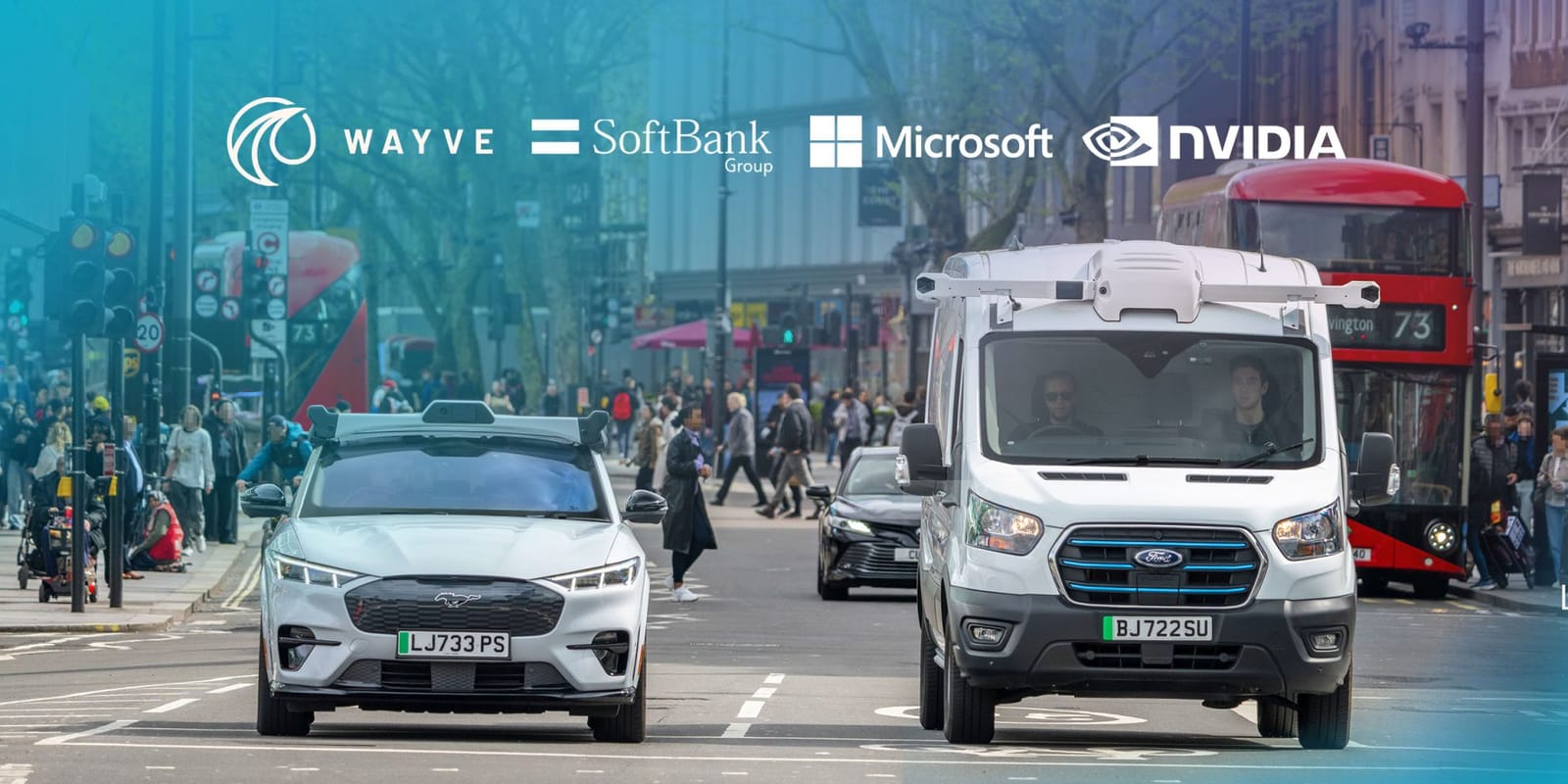Wayve recently closed a successful Series C funding round led by SoftBank Group and backed by NVIDIA and Microsoft, an existing investor. The company plans to profit from the investors' support and accelerate its embodied AI product. In particular, Wayve's partnership with Microsoft and NVIDIA will enable the company to leverage Microsoft Azure, and the NVIDIA Drive Orin and Thor platforms. Wayve's immediate plans include launching its first product featuring the L2+ AI Drive Assist System (ADAS), geared towards the consumer vehicle market. In the long term, the company plans to continue working to enable an ecosystem of Embodied AI products that will ultimately support the creation of Level 5 autonomous vehicles and more.
To celebrate the news of its Series C, Wayve reflected on the importance of embodied AI in a way that showcases the company's mission and approach to AI and explains why the company has decided to focus on embodied AI over AGI. Wayve presses a point that often gets obscured amid the excitement about generative AI: large language models can be deployed and adopted astoundingly fast, but they lack a physical interface requiring real-world testing. The idea of real-world reasoning for vision-enabled LLMs seems fairly recent: xAI prides itself on developing the first vision-enabled model that dives into real-world spatial understanding. But even here, the reasoning is mediated by a carefully prepared dataset involving question answering in a controlled setting, as opposed to autonomous vehicles, which require AI systems that can handle complex, unpredictable real-world scenarios.
Wayve's approach to AI presupposes that Level 5 autonomous driving will operate in an open-world setting, arguably requiring general-purpose, unbounded reasoning, thus pressing researchers to solve challenges that do not seem as pressing when working with LLMs or industrial robotics. It is hard to resist the pull of Wayve's argument, and as a consequence, it is hard not to be excited about the company's accomplishments and its plans for the future.







Comments